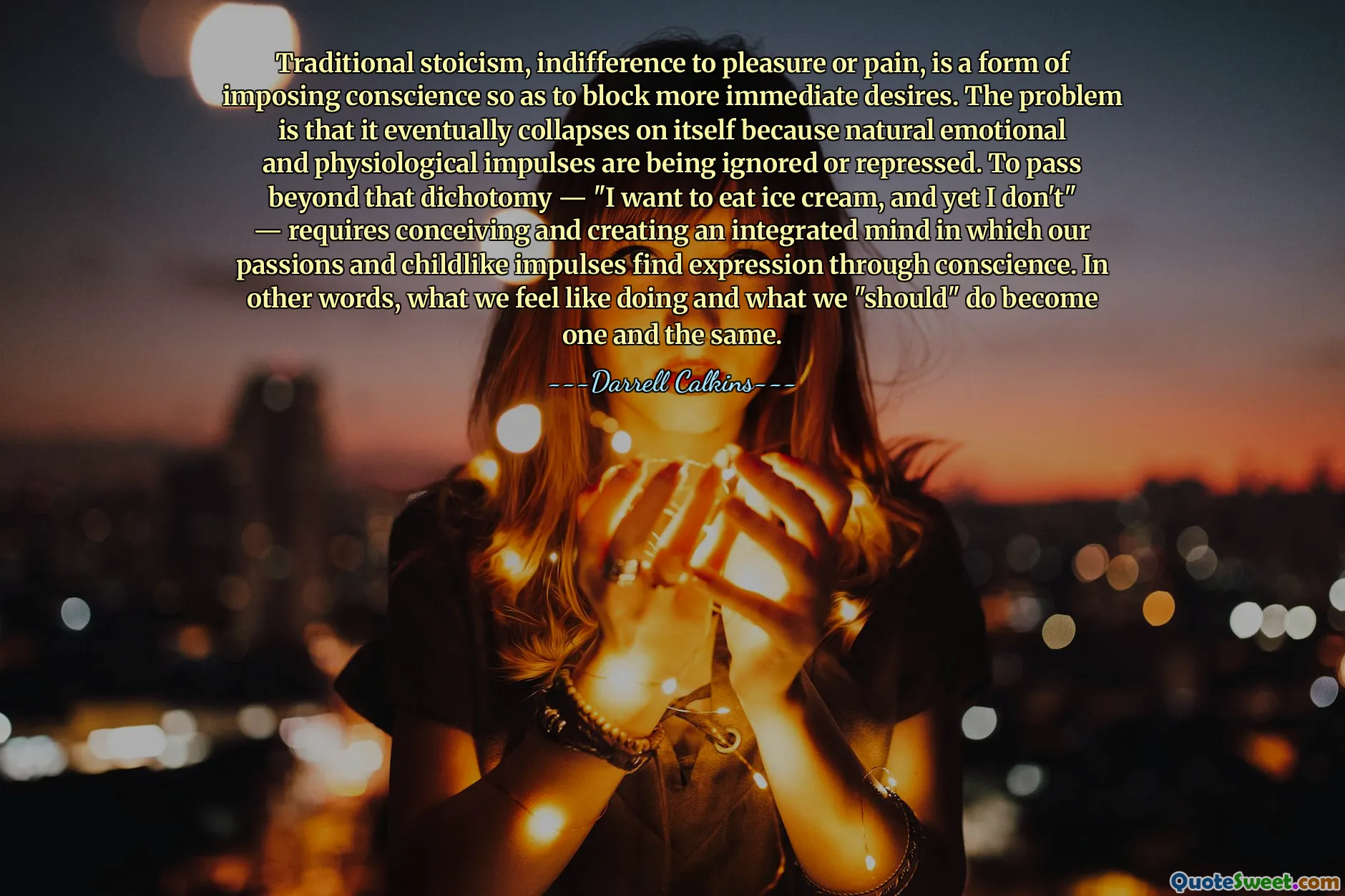
Traditional stoicism, indifference to pleasure or pain, is a form of imposing conscience so as to block more immediate desires. The problem is that it eventually collapses on itself because natural emotional and physiological impulses are being ignored or repressed. To pass beyond that dichotomy — "I want to eat ice cream, and yet I don't" — requires conceiving and creating an integrated mind in which our passions and childlike impulses find expression through conscience. In other words, what we feel like doing and what we "should" do become one and the same.
This quote offers a profound exploration of the limitations inherent in traditional stoicism, which advocates for emotional restraint and indifference towards pleasure and pain. While such an approach aims to cultivate virtue and self-control, it often results in the repression of natural impulses, leading to internal conflict and eventual breakdown of the stoic ideal. The key insight here is the necessity of integration—creating a mental harmony where desires and moral values coexist rather than oppose each other. By embracing our passions and childlike impulses within a framework of conscience, we develop a more authentic and balanced sense of self. This not only enhances emotional well-being but also fosters genuine self-awareness and integrity. The analogy of the ice cream exemplifies the everyday dilemmas faced when impulses are denied or suppressed, underscoring the importance of aligning inner desires with moral considerations. Achieving this harmony allows us to act sincerely and become more genuine in our pursuits, transforming the notion of virtue into an integrated aspect of our personality. The quote encourages us to rethink traditional notions of restraint and to pursue an enlightened integration that honors both our natural inclinations and our ethical commitments.











